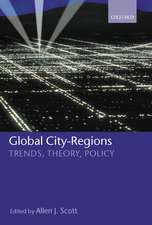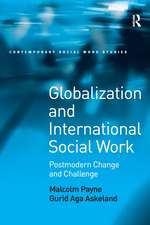The New Geography of Capitalism: Firms, Finance, and Society
Autor Adam D. Dixonen Limba Engleză Paperback – 28 mai 2014
| Toate formatele și edițiile | Preț | Express |
|---|---|---|
| Paperback (1) | 243.73 lei 31-37 zile | |
| OUP OXFORD – 28 mai 2014 | 243.73 lei 31-37 zile | |
| Hardback (1) | 625.86 lei 31-37 zile | |
| OUP OXFORD – 29 mai 2014 | 625.86 lei 31-37 zile |
Preț: 243.73 lei
Preț vechi: 271.93 lei
-10% Nou
Puncte Express: 366
Preț estimativ în valută:
46.65€ • 50.69$ • 39.21£
46.65€ • 50.69$ • 39.21£
Carte tipărită la comandă
Livrare economică 09-15 aprilie
Preluare comenzi: 021 569.72.76
Specificații
ISBN-13: 9780199668243
ISBN-10: 0199668248
Pagini: 214
Dimensiuni: 140 x 216 x 13 mm
Greutate: 0.28 kg
Editura: OUP OXFORD
Colecția OUP Oxford
Locul publicării:Oxford, United Kingdom
ISBN-10: 0199668248
Pagini: 214
Dimensiuni: 140 x 216 x 13 mm
Greutate: 0.28 kg
Editura: OUP OXFORD
Colecția OUP Oxford
Locul publicării:Oxford, United Kingdom
Recenzii
Capitalism isnt what it used to be. And Adam Dixons New Geography of Capitalism makes a bold case for thinking about capitalism in new ways too. Thinking about capitalism as a variegated system, but as a system nonetheless, allows Dixon to avoid the pitfalls of both flat-earth convergence theory and those of institutionalist accounts of national variety. His promising alternative takes the problematic of integration seriously, not least as an engine of new geographies.
While we have all been riveted on the financial crisis, a deeper story about the financialization of the global economy has been unfolding, with huge implications for social welfare and well-being in the advanced industrial countries. Adam Dixons book provides the essential guide to understanding this complex process.
The New Geography of Finance is a tour de force. Its crystal-clear synthesis of the literatures on contemporary capitalist and financial systems, and its placement of financial-firm imperatives at the centre of global dynamics and national economic evolution, will shape debate on the evolution of finance for years to come.
While we have all been riveted on the financial crisis, a deeper story about the financialization of the global economy has been unfolding, with huge implications for social welfare and well-being in the advanced industrial countries. Adam Dixons book provides the essential guide to understanding this complex process.
The New Geography of Finance is a tour de force. Its crystal-clear synthesis of the literatures on contemporary capitalist and financial systems, and its placement of financial-firm imperatives at the centre of global dynamics and national economic evolution, will shape debate on the evolution of finance for years to come.
Notă biografică
Adam D. Dixon is a senior lecturer in economic geography at the University of Bristol. His research focuses on comparative economic geography, the geography of finance, and the political economy of institutional investors. He is co-author with Gordon L. Clark and Ashby H.B. Monk of Sovereign Wealth Funds: Legitimacy, Governance and Global Power (2013, PUP) and co-editor with the same of Managing Financial Risks: From Global to Local (2009, OUP). He is a visiting scholar at Stanford University's Global Projects Center and has held visiting positions at Heidelberg University in Germany and Maastricht University in the Netherlands. He has a D.Phil from the University of Oxford, and master's and bachelor's degrees, respectively, from L'Institut d'Etudes Politiques de Paris (Sciences Po) and The George Washington University in Washington, DC.












